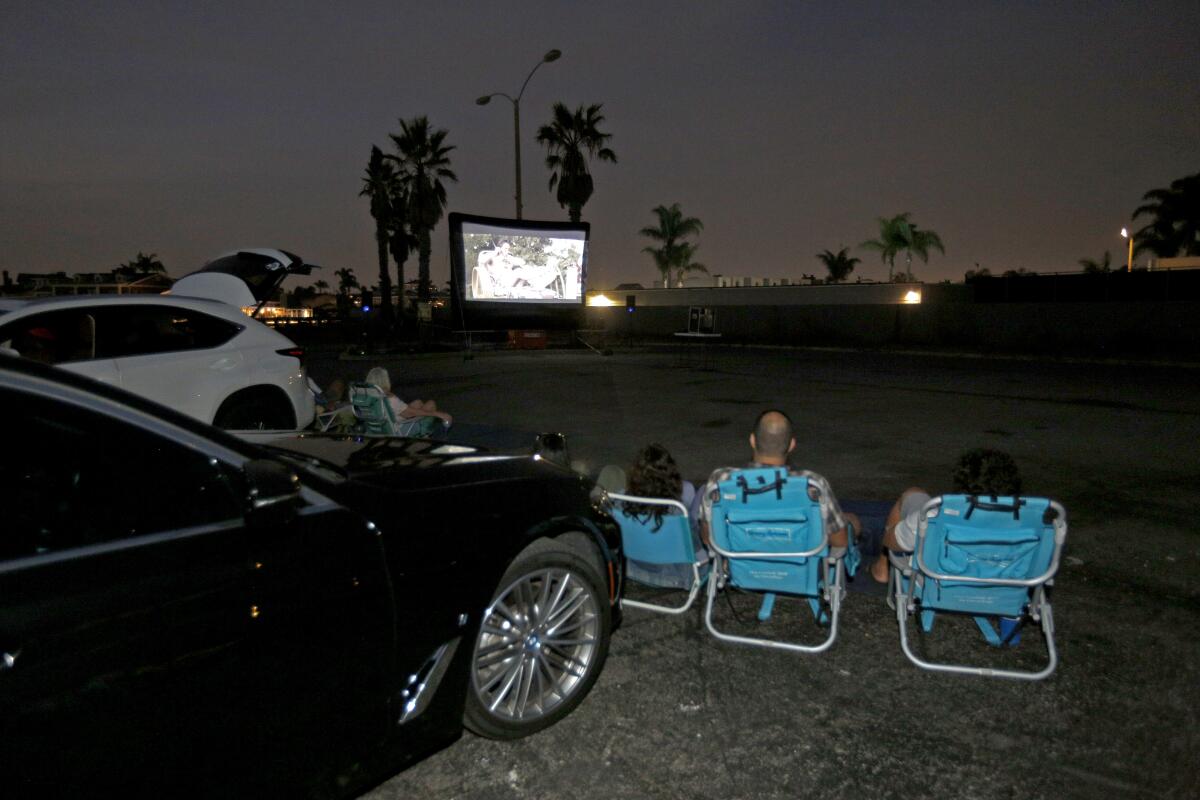A Word, Please: Some readers might cringe when they read this

- Share via
“I hated that movie. The love scene was so cringe.”
Suddenly, this use of “cringe” seems to be everywhere. And some quasi-scientific evidence shows it’s on the rise.
According to Google’s Ngram Viewer, which lets you search for words and terms in a database of published sources then charts the words’ use over time, “cringe” appeared in about 0.000013% of published works in the mid-1970s. By 2017, “cringe” was showing up in about 0.0001% of published writing in the database — a nearly eightfold increase.
These numbers tell us only that “cringe” is being used more often, not how it’s being used. So from these numbers alone, we can’t tell whether this uptick comes from people using “cringe” in the traditional way, as a verb, for example describing characters in horror novels who “cringe” in fear. But if we tweak our search term we can learn more.
In the phrase “so cringe,” it’s likely that “cringe” is being used not as a verb but as an adjective. We know this because “so” is an intensifier of adjectives: so nice, so true, so small, so bright.
I searched Ngram Viewer for “so cringe.” No surprise: The phrase is extremely rare in published writing, appearing in just 0.00000007% of published works in the database in 2017. But compared to 50 years ago, that’s a landslide. In the mid-1970s, “so cringe” showed up in 0% of the publications in the database. It didn’t exist.
That’s Exhibit A that the verb “cringe” is being adopted as an adjective.
Exhibit B: the emergence of the term “cringe comedy” to describe shows like “The Office” and “Curb Your Enthusiasm” that make viewers laugh by making them squirm. Wikipedia even has an entry for “cringe comedy.” I don’t recall people using that language to describe the awkward hilarity in “The Bob Newhart Show” or “All in the Family.”
Exhibit C (and this is the real hallmark of a language shift): the backlash. Whenever a new English usage gains popularity, people push back, as evidenced by this February 2022 post on Reddit.
“Cringe is a VERB,” an anonymous user insisted. “It’s something you DO: ‘I cringe at the thought’; ‘I am cringing just thinking about it’; ‘he cringed so much he imploded.’… Cringe is NOT an adjective, so saying ‘that is so cringe’ or ‘that’s the most cringe thing ever’ is objectively incorrect. … It’s like pointing at something funny and saying, ‘That is so laugh!’ What people mean when they use ‘cringe’ as an adjective is ‘cringe-worthy’ or ‘cringe-inducing.’”
Anonymous has a point. “Cringe,” according to my 2006 American Heritage Dictionary, is mainly a verb, though it can also be used as a noun to mean the act of cringing. But there’s no listing for an adjective form. My 2002 Webster’s New World College Dictionary agrees, as does my 2009 Merriam-Webster’s Collegiate Dictionary.
From parts of speech to whether or not that word you keep hearing is a genuine one, a dictionary will have the answer.
Fast-forward to the present and you can see history in the making. Merriam-Webster’s online edition, which is more current than any of my physical dictionaries, defines “cringe” not just as a verb and a noun, but also as a slang adjective meaning “so embarrassing, awkward, etc. as to cause one to cringe; cringeworthy.”
This is how new word forms are born. For a few centuries, a word like “cool” means lower in temperature. Then, from the world of pop culture and the arts, “cool” gains currency as a slang term meaning “fashionable” or “excellent.” Then dictionaries stop labeling it “slang” and start labeling it as “informal,” which is how Merriam’s now describes this use of “cool.” If it doesn’t fall out of use, dictionaries will eventually consider this use of “cool” to be standard and acceptable even in formal contexts. That’s just how language goes.
So if “cringe” as an adjective makes you cringe, that just means you don’t like slang. And that’s perfectly cool.
June Casagrande is the author of “The Joy of Syntax: A Simple Guide to All the Grammar You Know You Should Know.” She can be reached at JuneTCN@aol.com.
All the latest on Orange County from Orange County.
Get our free TimesOC newsletter.
You may occasionally receive promotional content from the Daily Pilot.






